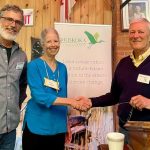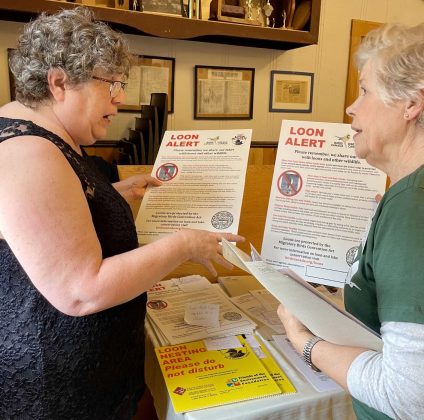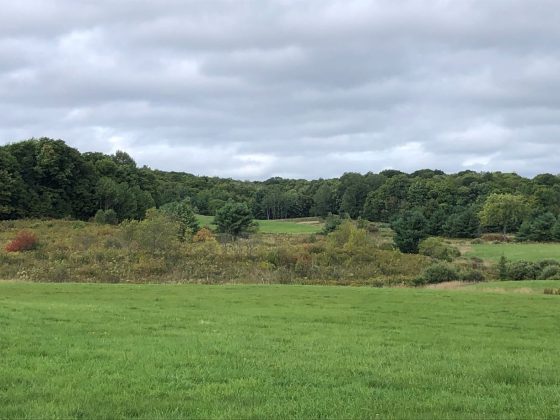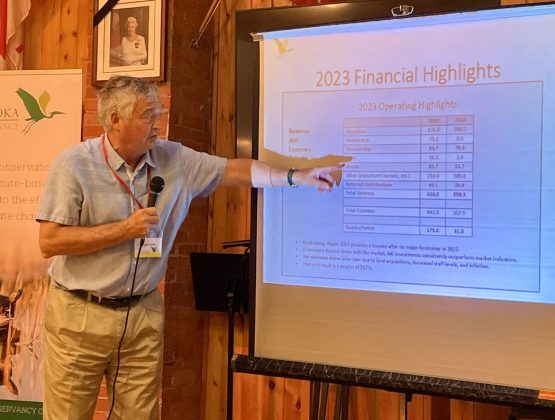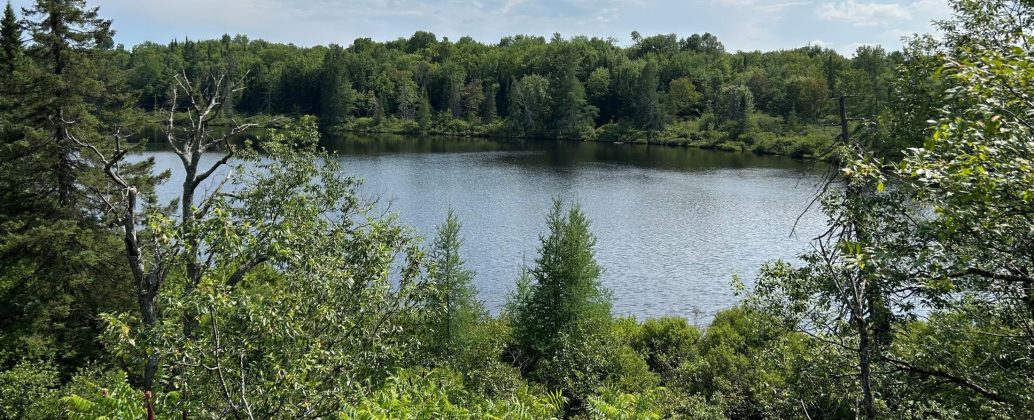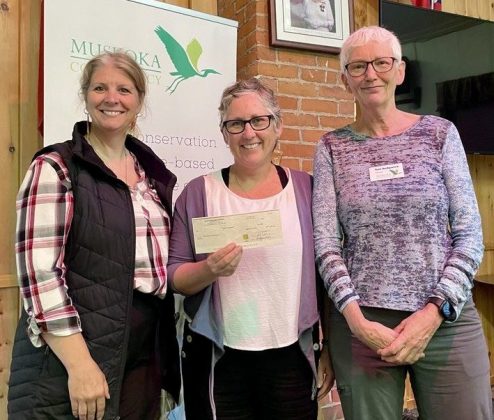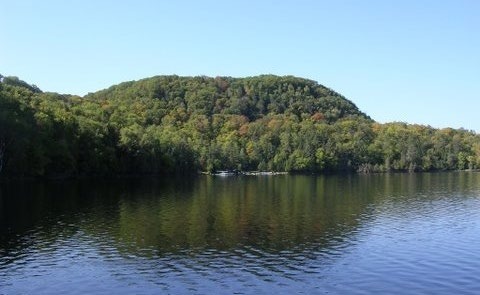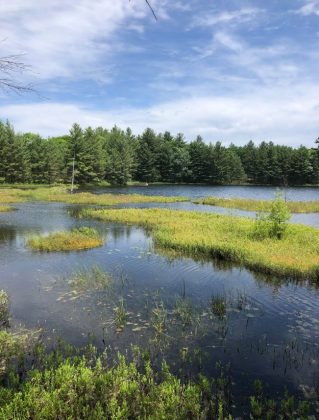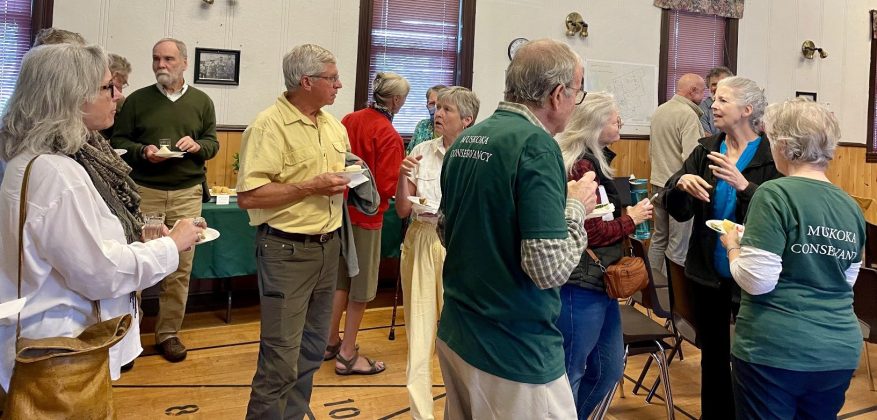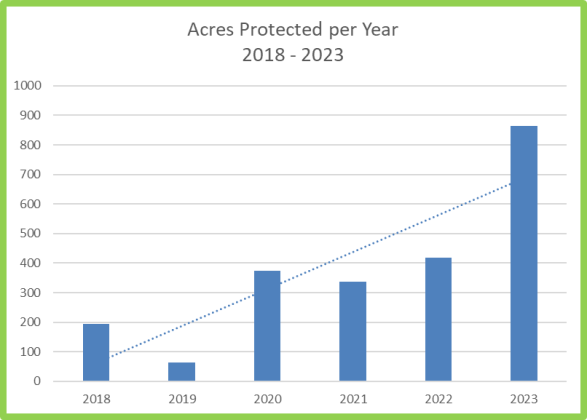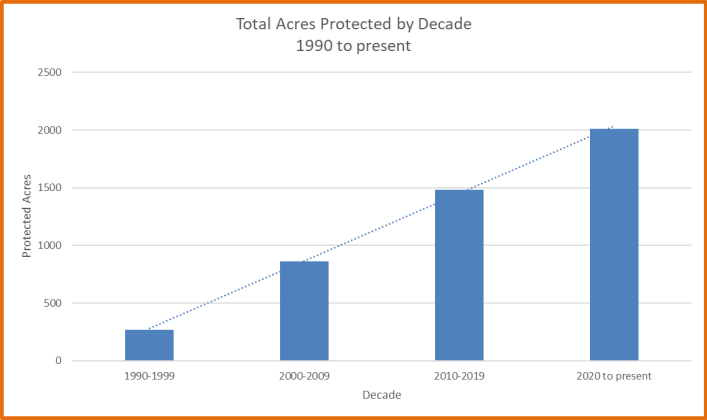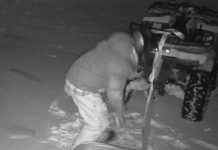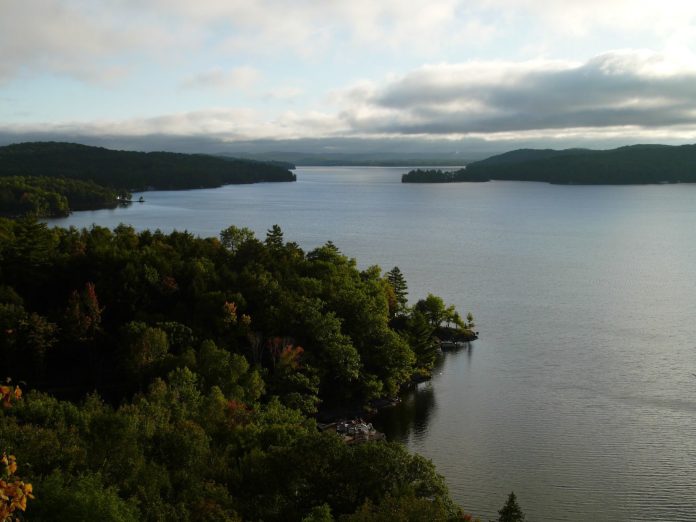
Muskoka Conservancy is having unprecedented success. In the past five years, the local nature conservancy has protected an additional 2090 acres. To put that into perspective, that’s about half of all the land protected by Muskoka Conservancy since 1987. The local land trust celebrated this success on Friday, June 7 at its Annual Meeting, held at Raymond Community Center, north of Bracebridge.
“Nature conservation benefits people in all the communities we serve, it confers benefits to future generations, and everyone connected to Muskoka Conservancy shares a part of this success,” said Executive Director Scott Young. “From the youngsters in our Little Sprouts Eco Club right on up to the donors of multimillion-dollar properties, we thank you all!”
Board chair Bob Weekes highlighted the most recent success stories in his address to Conservancy supporters who packed the charming and historic meeting hall. “We have had another successful year,” he said, “adding five more properties to the lands under our protection.”
Attendees enjoyed a slide show featuring photos of the newly protected lands:
- 17 acres on Porter Lake near Bala donated by Nature photographer Eleanor Kee-Wellman.
- An enhanced easement for 1,760 feet of shoreline on Lake of Bays thanks to Tara and Jason Ashdown.
- Another 20 acres were added to The Wolf Mountain Conservation Easement on Peninsula Lake thanks to Norm Moffat.
- An addition to the South Monck Meadows Nature Reserve on the outskirts of Bracebridge thanks to John & Kerry Fitzmaurice.
- The 597-acre Carr’s Lake Hunt Camp—now the largest of Muskoka Conservancy’s holdings, made possible with gifts from Brad Ford, Don Scott, Gerard Newman, David Young, and William Fitchett, and financial backing from Maple Cross, The Kenneth M Molson Foundation, Canada’s Nature Smart Climate Solutions, and Ontario’s Greenlands
Conservation Partnership Program.
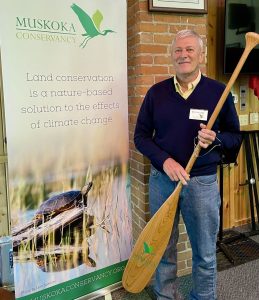
“We are indebted to those foundations and to all our other financial supporters. We are also most grateful to our dedicated team of Board members and a number of committed volunteers who work quietly behind the scenes,” said Weekes.
Weekes has now completed his term as Board Chair. He remains with the Board as Past Chair. Peter Love was appointed the next Board Chair of Muskoka Conservancy at the meeting.
Love has been active in environmental and energy policy for more than 50 years. While at university in the late 60s, he became one of the founding members of Pollution Probe. His first full-time job was at Pollution Probe as part of the team that developed the concept of the 3 R’s: “Reduce, Reuse, Recycle.” A former Chief Energy Conservation Officer for Ontario, he has served as director of the Muskoka Lakes Association and the Canadian Coalition on Acid Rain.
Muskoka Conservancy offers a local, nature-based solution to serious environmental problems like climate change, biodiversity loss and over-development. These land conservation efforts are mirrored by many similar organizations across Ontario, Canada, the U.S. and beyond, meaning local action is having a global impact.
“The Conservancy team of staff, donors, and volunteers are all dedicated to a clear cause: every year protecting more land,” said Young. “We are part of a success story making Muskoka better while helping to solve global challenges, and that feels good!”
The Conservancy gathering also included an awards ceremony. The prestigious Wayland Drew Award was presented to Allyn Abbott, who for decades has exemplified environmental leadership, stewardship and conservation through her involvement with the Conservancy.
The Esson Bursary was awarded to local Secondary School graduates Zachary Caplan of Huntsville and Will Lockhart of Bracebridge ($2,000 each). Odin Robinson took home the Little Sprouts Eco Club Photo Contest prize, and Laurel Turansky was the winner of the 2024 Michael Foster Photography Contest.
The meeting wrapped up with a special keynote presentation by Kathy Jones of Birds Canada, who spoke about the declining status of The Common Loon in Muskoka. The presentation included an update on the Canadian Lakes Loon Survey, and offered some helpful do’s and don’ts for installing floating nesting platforms.


